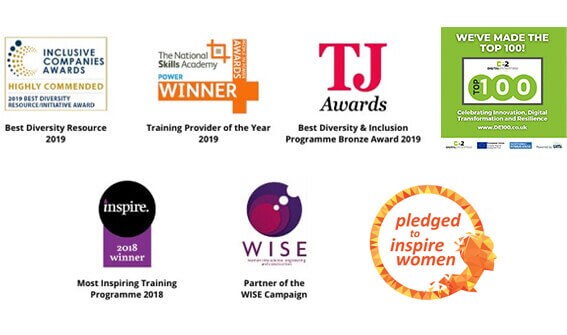While the most recent figures show an improvement in the situation, current stats suggest that women earn on average around anything from 9% to 13% depending on what report you look at. And this is for younger aged employees. The older the men and women in the study get, the wider the pay gap.
It all adds up to show that women in business can earn around a quarter of a million pounds less than their male equivalent throughout their careers (dependent of course of career path).
Senior staff have the greatest influence over promotions and pay rises so addressing the problem can begin here. Businesses should consider a more gender balanced of male to female senior management positions.
Since 2017, companies in the UK with more than 250 employees have had to report their gender pay gap figures at the end of the financial year. Yet all this has done is highlight the problem rather than create solutions to address them. While there has been progress in reducing the gender pay gap, it is going too slowly with estimates suggesting that it will take decades to achieve a balanced and equal pay for Men and Women.

Now that we know that there is still a large gender pay gap and we know it needs to be addressed, what can actually be done about it. While there are suggestions that will work for some businesses and not for others, here is a selection of actions and strategies that can help tackle the gender pay gap in your business:
When a business has transparent processes for promotion and pay rises, it ensures that everyone in the company has an equal opportunity for career development. By sticking to structured and skill based recruitment programmes to fill vacant positions, it can help to reduce unconscious bias in the workplace while opening up constructive dialogue about salary – highlighting any pay gap issues.
Studies have shown that men are more likely to negotiate on salary and that has been suggested as a reason for some levels of gender pay gap in modern STEM businesses. To address this, businesses should be encouraging employees to negotiate their salary and when promoting an available position withing the company, providing the specific salary for that position.
Unconscious Bias is a significant issue in UK business and for many companies, they are simply not aware that they are influenced by it. However unconscious bias has a real affect on promotion, bonus and benefit packages that are beneficial to men and work against women.
While UK laws have been in play since 2015 that allow men to take parental leave, many new fathers have found that their businesses are not supportive of the plan. All that this does is put strain on the partners who want to work but therefore can’t.
Flexible working became all the rage thanks to the global Covid-19 pandemic but by offering flexible working to women, it can help them to better handle childcare responsibilities while maintaining a career and the needed income. And this can have a beneficial effect on helping to reduce to gender pay gap. It is not uncommon for women in business to work reduced hours to allow them to manage family at home. This has a knock on effect by reducing their income. Having a flexible working policy in your business can help to address the gender pay gap at your company.
To change behaviours, we must first change minds and hearts. And this is best achieved through live, candid interaction. We all have unconscious bias. We are ingrained with stereotypes that we unintentionally hold onto as beliefs that can affect our behaviour and our attitude to others in the workplace.
An easy example of unconscious bias would be in a hospital, you are most likely to assume that a Doctor is a male and a Nurse is a female.
Sometimes these assumptions can be brushed off as innocent mistakes but unconscious bias can run deep within people and can cause significant disruption to work flow and productivity in the workplace.
Tackling gender diversity and unconscious bias in the workplace can have a clear benefit to addressing gender pay gaps. At Skills 4 Training, we provide a range of Career Development for Women Training Programmes, Diversity and Unconscious Bias Training Programmes. Training is delivered by experienced sector specialists who can quickly get to the issues at the heart of the organisation. Each session gives participants the opportunity to ask questions and interact with their trainer and is tailored to meet the needs of the audience. We have a successful record in delivering impactful workshops from the boardroom; to specific functions such as recruitment and selection teams; through to shop-floor operatives.
Unrivalled Expertise in the Construction and Engineering Sectors. Skills 4 is one of the UK’s leading Diversity and Inclusion Training Providers supporting our clients to attract, retain and progress diverse talent. The company was established in 2006, by the current CEO Jayne Little, in response to issues identified in the government-commissioned Report, ‘Shaping a Fairer Future’.
We offer Award Winning training and bespoke interventions which deliver measurable results and enable our clients to attract, retain and progress diverse talent.
